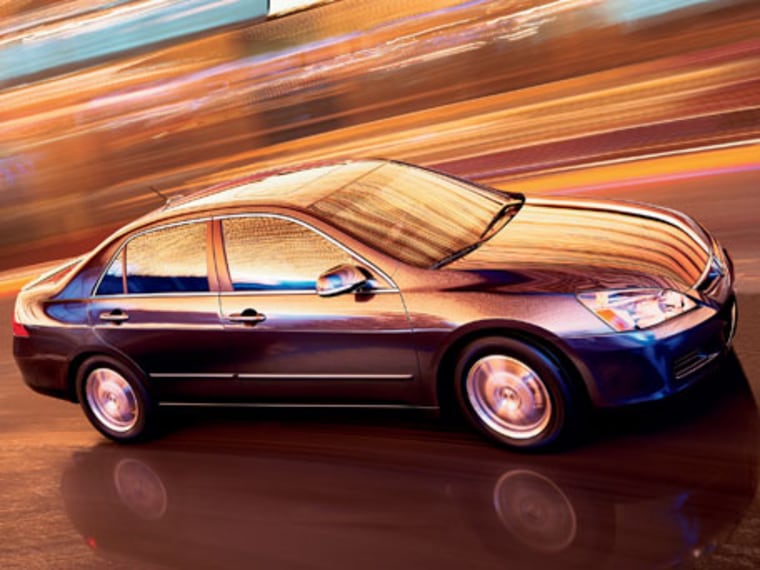Accustomed to informing its 4 million readers about others’ products, Consumer Reports magazine has had to alert them to its own mistake: Its April auto issue, already sent out to readers, contains flawed data that showed no hybrid vehicle can save money compared to a gasoline peer.
Revised figures show that two of six hybrids tracked, the Toyota Prius and Honda Civic Hybrid, do save owners money in the first five years — $406 and $317, respectively, compared to the Toyota Corolla LE sedan and Civic EX sedan, the magazine said.
“In maintaining our commitment to the highest levels of accuracy and credibility, Consumer Reports is posting a revised version of the report on its Web site,” Automotive Editor Rik Paul said in a statement. “We deeply regret the error.”
Depreciation for the hybrids was miscalculated, inflating hybrid ownership costs by thousands of dollars, the magazine said.
Lower extra costs on others
The four other hybrids were still more expensive than gasoline peers, but the extra costs (in parentheses) were much lower than the amounts published in the annual auto issue: Ford Escape Hybrid ($1,883), Honda Accord Hybrid ($4,263), Lexus RX400h ($4,171) and Toyota Highlander Hybrid ($5,508).
“The error does not affect the main message of the story, which is that most hybrids do not save their owners money in the first few years, and that the benefits and costs of hybrids vary significantly, depending on the model,” the magazine said. “Because of the wide range of hybrid vehicles available, it's especially important for consumers to look carefully at all aspects of a vehicle before buying.”
Because they included an electric motor system, all hybrids have a premium of several thousand dollars over their gasoline peers.
Consumer Reports set out to compare total ownership costs after five years and 75,000 miles. Factors weighed included the premiums, a new federal tax credit for hybrids, sales tax, fuel savings, insurance, maintenance, depreciation and financing.
Other benefits
The report also took care to emphasize the non-financial benefits of hybrids.
The magazine noted that most current models of hybrids score well in its testing as well as in its reliability and owner satisfaction surveys.
It also pointed out that each gallon of gasoline not burned prevents the emission of 19 pounds of carbon dioxide — a gas that many scientists believe is tied to global warming.
“We really like hybrids in terms of their overall performance” and environmental benefits, says Doug Love, a spokesman for Consumers Union.
Another potential benefit: Some states allow hybrid drivers to use carpool lanes even if only one person is in the vehicle.
“These benefits add up to an inviting package for many car buyers who are willing to pay a premium for a hybrid,” Consumer Reports said.
The revised report, “The Dollars and Sense of Hybrids,” is online at www.ConsumerReports.org/autos2006.
